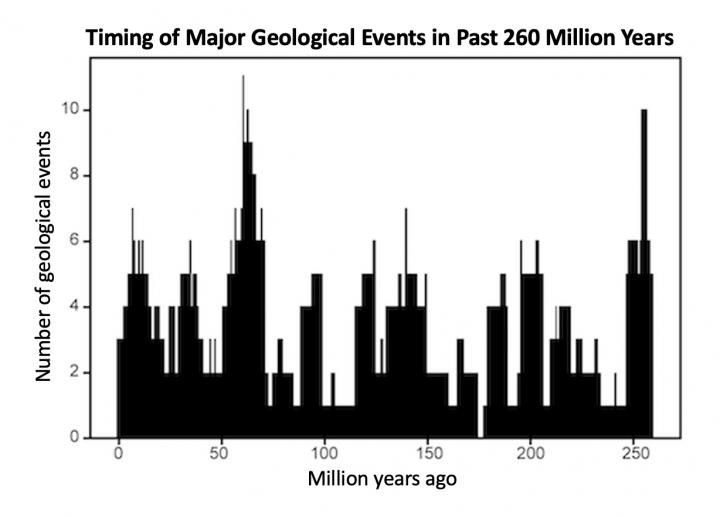
It might seem like geologists are just studying a bunch of old – and sometimes really old – rocks. The reality is that Earth science researchers look back at the geologic record of our planet to understand how we got here, and what we can expect next for life on Earth.
In a study, published in Geoscience Frontiers in November 2021, researchers from New York and California helped pinpoint an important fact about our planet that has huge implications for us: the Earth has a "pulse," or regular peaks of geologic activity. They identified the pulse in part by looking at mass extinctions, something we obviously want to know about since this is the only planet our species currently calls home.
Advertisement


